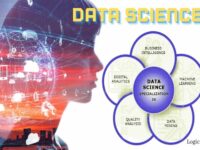Data intelligence – Definition and Use Cases

Data intelligence, in essence, is all about turning raw business information into an actionable insight. This can help you in driving smart decisions and create valuable outcomes through it.
But, that’s a simple and practical definition of what we know as ‘data intelligence.’ What does it really mean in hindsight? How should we even use it for the growth of our company?
Let’s find out more about it.
Data Intelligence – A Run-of-the-Mill Definition
Imagine you have a massive pile of puzzle pieces scattered all over the floor.
Each piece represents a tiny fragment of information. On its own, it doesn’t make much sense, but when you start putting the pieces together, a beautiful picture emerges. That’s exactly what data intelligence does with business data.
Basically, ‘data intelligence’ refers to a procedure of collecting, evaluating, and interpreting a basic sort of data to gain meaningful knowledge.
It involves various technologies like machine learning, artificial intelligence, and advanced analytics to transform raw data into valuable and insightful information.
Once you’ve extracted the data you were seeking, you can use it for several purposes, like –
- Improving customer experiences
- Optimizing business operations
- Making informed decisions
The Pillars of Data Intelligence
At this point, we think we’ve given you a vague idea on what data intelligence actually is. So, now, we’ll explore how it actually works by learning more about its pillars. Let’s begin!
1: Data Collection
Everything starts with data collection. Organizations gather data from various sources, such as customer interactions, social media, sensors and transactions. The more information you have, the better your analysis and insights can be.
2: Data Storage and Management
Handling vast amounts of data requires proper storage and management. Data warehouses, databases, and cloud platforms play a crucial role in storing and organizing data efficiently. It might be a little expensive in maintaining all of these – but they’ll be useful in the long run.
3: Data Analysis
This is the heart of data intelligence. Data analysts and data scientists use various statistical and analytical techniques to explore data, discover patterns, and extract valuable insights. The more you evaluate while following your approach, the better.
4: Data Visualization
Once insights are obtained, presenting them in a visually appealing and easy-to-understand manner is essential. Most data visualization tools can help translate complex information into intuitive charts, graphs, and dashboards to make them more comprehending.
5: Actionable Insights
All the analysis and visualization isn’t going to be useful without actionable insights. Data intelligence aims to provide clear, practical recommendations and strategies based on the data findings. This way, it becomes easier for you to make an informed decision easily.
Use Cases of Data Intelligence
So, as of now, you have a clear, theoretical idea about what data intelligence is and how does it work. In this section, we’ll tell you about how you can use it in your organization.
Let’s get started.
1: Business Analytics and Performance Optimization
Data intelligence plays a vital role in helping businesses understand their performance, identify areas of improvement, and optimize their operations.
By analyzing sales data, customer behavior, and market trends, companies can make informed decisions about product development, marketing strategies, and supply chain management.
2: Personalized Customer Experiences
Ever wondered how streaming services recommend the perfect show or how online stores suggest products you might like? Data intelligence is the magic behind personalized experiences. By analyzing user behavior and preferences, platforms can offer tailored recommendations and improve customer satisfaction.
3: Healthcare and Medical Research
Data intelligence is transforming the healthcare industry. It enables medical professionals to analyze patient data, predict disease outbreaks, and develop personalized treatment plans.
Researchers might also use data intelligence to study large datasets, accelerating medical discoveries, and ensuring a successful information management..
4: Financial Fraud Detection
Banks and financial institutions use data intelligence to detect and prevent fraudulent activities. By analyzing transaction patterns and user behavior, they can flag suspicious activities and protect their customers from potential fraud.
5: Smart Cities and Urban Planning
In smart cities, data intelligence helps optimize traffic flow, manage energy consumption, and enhance public services. Sensors collect data from various urban elements, and data analysis provides valuable insights for decision-makers.
6: Supply Chain Optimization
Data intelligence helps businesses streamline their supply chain processes. By analyzing data related to inventory levels, shipping times, and demand patterns, companies can make data-driven decisions to reduce costs and improve efficiency.
7: Social Media and Sentiment Analysis
Social media platforms generate an enormous amount of data every second. Data intelligence tools can analyze this data to understand public sentiment, monitor brand reputation, and even predict trends.
8: Predictive Maintenance
In industries like manufacturing and transportation, data intelligence enables predictive maintenance. By analyzing sensor data and equipment performance, companies can identify potential issues before they cause major disruptions and costly repairs.
Challenges of Implementing Data Intelligence
Although using data intelligence will bear fruit for your organization, you’ll still need to be as mindful as possible about the risks it comes with. For example –
1: Data Privacy and Security
With the vast amounts of data being collected, ensuring the privacy and security of sensitive information is paramount. Proper data governance and compliance measures must be implemented.
2: Data Quality and Integration
Poor data quality can lead to inaccurate insights. Organizations must invest in data cleansing and integration processes to ensure that the data used for analysis is reliable.
3: Data Skills Gap
The demand for data analysts and data scientists is growing rapidly, but there’s a shortage of skilled professionals. Upskilling and training initiatives are necessary to bridge this gap.
4: Ethical Considerations
As data intelligence becomes more sophisticated, ethical considerations become crucial. Organizations must use data responsibly and avoid bias or discrimination in their analyses.
Ending Thoughts
Data intelligence is a game-changer across various industries. It empowers organizations to harness the power of data and make better decisions, improve customer experiences, and drive innovation. By leveraging the pillars of data collection, analysis, visualization, and actionable insights, businesses can stay ahead of the curve in today’s data-driven world.
As data intelligence continues to evolve, it will undoubtedly shape the future of how we interact with information and drive progress in every aspect of our lives. So, embrace the data revolution and unleash the power of data intelligence in your endeavors!






